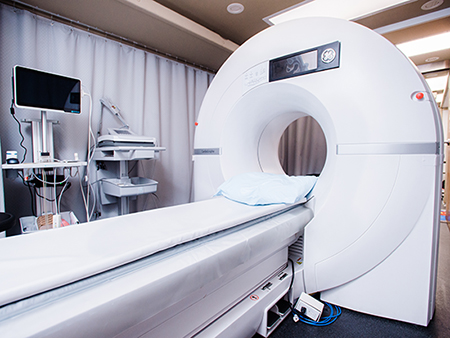UAB uses mobile clinic to examine disease risk of rural Southerners – News
The RURAL Heart and Lung Study Clinic will provide technology to rural communities that provides access to diagnostic tests that are not routinely performed in rural settings. UAB researchers will examine medical, lifestyle, and behavioral factors that contribute to higher health concerns among Dallas and Wilcox counties.
Written by: Bob Shepard
Media contact: Hannah Echols
For photos of the clinic click here. For a video of the mobile clinic, click here.
One in six Americans lives in a rural county. These communities play an important role in the United States economy, but their residents tend to be less healthy and have shorter lives. The University of Alabama at the Birmingham School of Public Health has begun recruiting for a study to answer the question of why rural communities are more exposed to health-related concerns.
The Risk Underlying Rural Areas Longitudinal Study, or RURAL Study, will enable researchers to identify what is causing the high levels of heart, lung, blood and sleep disorders in southern rural communities. 4,600 multiethnic participants will be recruited from 10 rural counties in Alabama, Kentucky, Louisiana and Mississippi. In Alabama, the study will recruit 1,100 participants from Dallas and Wilcox counties, which have higher rates of heart and lung disease than other counties in the state.
The RURAL Heart and Lung Study Clinic will provide technology to rural communities that provides access to diagnostic tests not routinely performed in rural settings.
(Photography: Lexi Coon)In the past, rural residents were not included in research studies because they are not located near research hospitals and clinics. To recruit research participants and bring medical care to rural areas, the UAB will use a mobile clinic. The mobile clinic will travel to each study site to conduct medical examinations for study participants and encourage study engagement in various communities. Family, lifestyle and behavioral factors as well as medical history including the risk of heart, lung, blood and sleep disorders are recorded. Ecological and economic factors are also examined.
“The RURAL Heart and Lung Study Clinic will provide technology to rural communities that will provide access to diagnostic tests that are not routinely performed in rural settings,” said Suzanne Judd, Ph.D., co-lead researcher on the study and professor in the Department of Biostatistics of the UAB School of Public Health. “The project is a technical challenge, a challenge for social engagement and a challenge for disease prevention, which makes the work incredibly exciting.”
Participants will undergo a clinical exam that will take pictures of their heart and lungs and take other measurements of heart and lung function, such as inflammation in the blood, blood pressure, and a history of heart disease. If a health problem is discovered during the exam, the participant will be informed immediately. If participants don’t have a doctor, the researchers and study coordinators work with local doctors who can help participants with their condition. When they have a doctor, the researchers work with that person’s GP to provide test results and improve care.
 (Photography: Lexi Coon)“UAB is a major player in the state of Alabama,” said Shauntice Allen, Ph.D., co-principal of the study and assistant professor in the Department of Environmental Health Sciences at the UAB School of Public Health. “Access to quality care, education, and employment are all things everyone would want for their family. Access is an important issue in rural communities. It is important at local, regional and national levels to bring accessible health screenings to rural areas. “
(Photography: Lexi Coon)“UAB is a major player in the state of Alabama,” said Shauntice Allen, Ph.D., co-principal of the study and assistant professor in the Department of Environmental Health Sciences at the UAB School of Public Health. “Access to quality care, education, and employment are all things everyone would want for their family. Access is an important issue in rural communities. It is important at local, regional and national levels to bring accessible health screenings to rural areas. “
The $ 21.4 million six-year cohort study is funded by the National Heart, Lung and Blood Institute, part of the National Institutes of Health, and includes 50 researchers from 15 other institutions.
In addition to UAB, researchers from the University of Louisville, the Pennington Biomedical Research Center at Louisiana State University, and the University of Mississippi Medical Center will play a pivotal role in participant recruitment, retention, tracking, data return, outcome return, community engagement, and education. The study coordination center is the Boston University School of Medicine.
More information is available on the RURAL Study website.
[ad_1]


